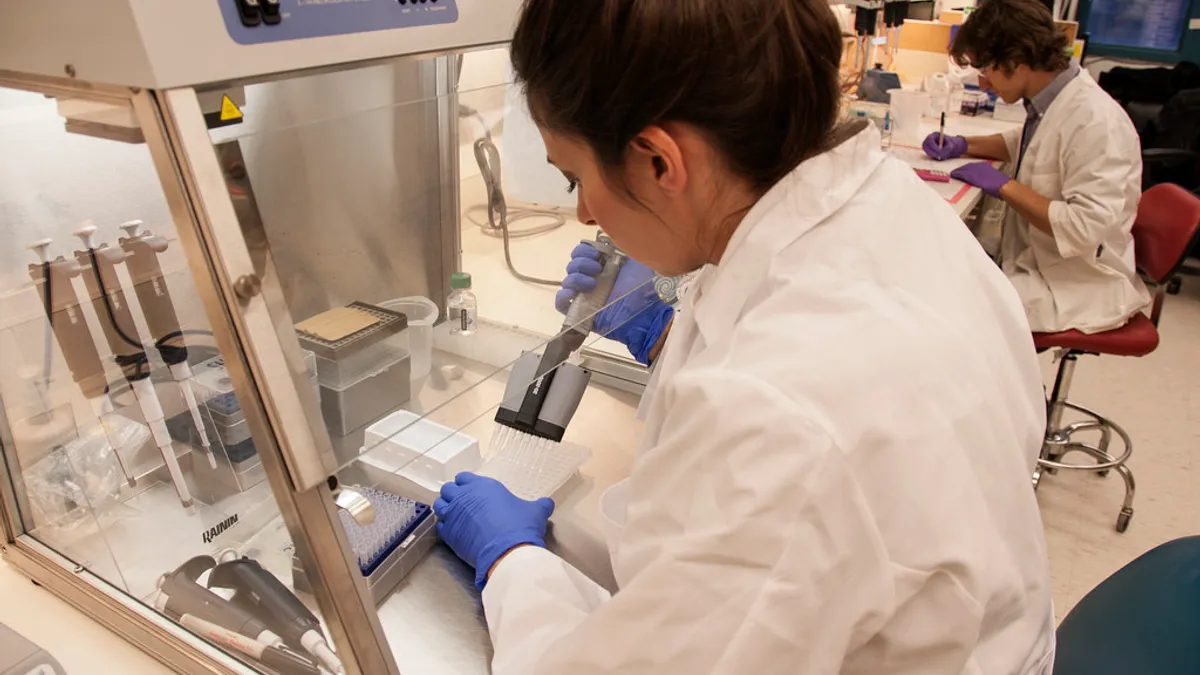Dive Brief:
- Gene editing is becoming democratized, available to students in community colleges and even some high school labs, and supporters of this do-it-yourself biological experimentation say that the increased availability of genetic engineering tools is akin to the advent of the personal computer in the 1970s, according to NPR.
- The CRISPR Cas9 tool, which is increasingly accessible, enables scientists to make changes to DNA in an easier and less-expensive manner — and according to University of Pennsylvania Professor Orkan Telhan, genetic engineering will become an important skill for students to have, similar to coding.
- Still, critics note the unpredictability and potential hazard of such DIY biology like gene editing, with some arguing it can be used negatively and even nefariously, and there is also concern about the risk for mistakes as the tool becomes more available to students without extensive training.
Dive Insight:
This type of analysis and hands-on experience can pay dividends for higher education institutions and industries in the future. Colleges and corporations have put money into K-12 schools, for example, in order to broaden students’ affinity for and experience with tech tools, and it would not be surprising to see a similar approach to gene engineering tools. Industries can see this as an upfront expense for a return on investment later on, as a more technically astute workforce will offer employers more potential candidates for jobs, and a more tech-astute populace will make the public more interested in their products. Colleges and universities would also benefit, as they can offer more innovative and advanced courses and become more attractive to incoming students, as their graduates will be more attractive to employers.
If the comparison is true, gene editing could become an essential skill like coding has become for STEM students, and even for those outside of a computer science track. Educators and districts must be careful not to create another side to the ongoing tech and digital equity gap facing schools throughout the country. Though it is unknown where and to what degree gene editing tools and technology have spread to K-12 schools, it is likely that those tools are not evenly dispersed. Districts must work hard to ensure access for all as much as possible so as not to add to the digital divergence.






 Dive Awards
Dive Awards




